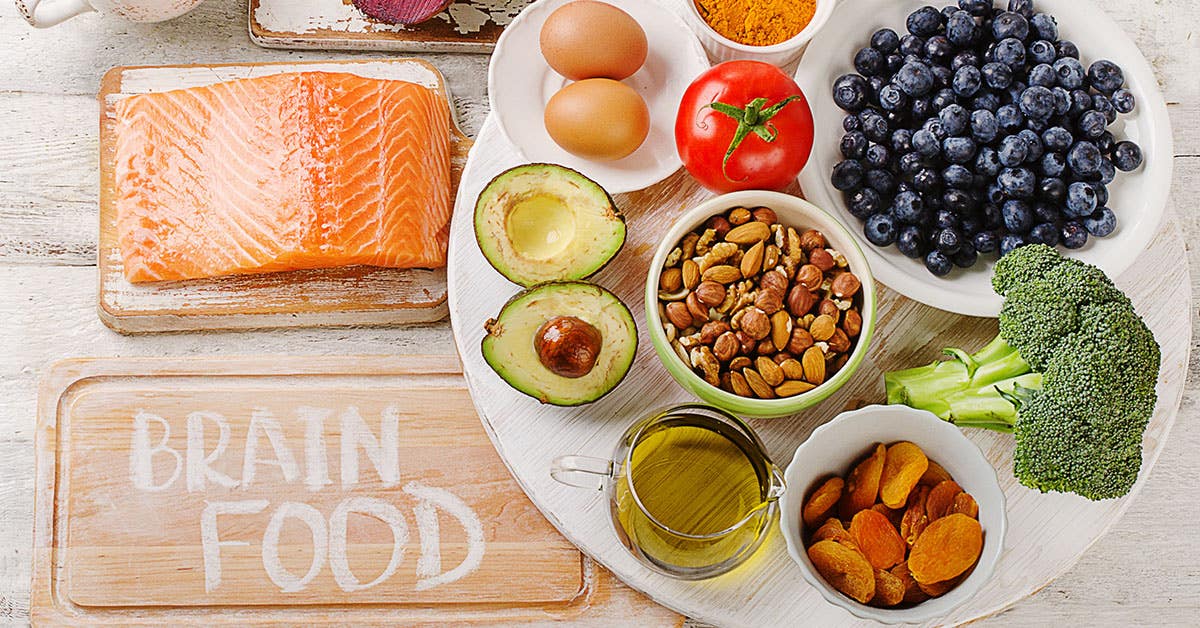5 nutrients can help keep brains in top condition at all ages, study finds
Scientists have found that the brains of individuals with Alzheimer’s disease are “strikingly lower” in five crucial micronutrients.

[Aug. 17, 2023: Staff Writer, The Brighter Side of News]
Recent findings from University of Cambridge researchers shed light on the vital interplay between brain anatomy and weight. (CREDIT: Nicoletta Barolini)
In a recent groundbreaking study, scientists have found that the brains of individuals with Alzheimer's disease are "strikingly lower" in five crucial micronutrients when compared to those without the condition.
This discovery, which could hold significant implications for preventative dietary interventions, was spearheaded by Professor C. Kathleen Dorey from the Virginia Tech Carilion School of Medicine and her team of experts.
The study, as published in the Journal of Alzheimer's Disease, meticulously analyzed the brain samples of 31 donors, whose average age stood at 75 years. A significant majority of these donors had succumbed to Alzheimer's disease.
The findings were nothing short of illuminating: brains afflicted with Alzheimer's had about half the concentration of the following pivotal micronutrients, which are vital to the body, albeit required in minuscule amounts:
Lycopene: A potent antioxidant responsible for the red hue in tomatoes, watermelons, and guavas. It aids in shielding cells from harm.
Retinol: A derivative of Vitamin A found in eggs, dairy, and oily fish. Crucial for immune function, vision, and skin health.
Lutein: Dubbed the "eye vitamin", it's prevalent in egg yolks, spinach, and corn. It plays a protective role against sun-induced eye damage.
Zeaxanthin: Another antioxidant found in eggs and citrus fruits. It works synergistically with lutein to safeguard our eyes.
Vitamin E: Present in nuts, seeds, and many vegetables, it fends off free radicals, bolsters immunity, and guards the heart against clot formation.
Related Stories
Interestingly, all these micronutrients wear the antioxidant badge, meaning they could counteract or delay certain cell damages. Dorey highlights, "Lycopene, lutein, and zeaxanthin are also carotenoids – pigments bursting with nutrients, predominantly found in fruits and vegetables." Prior extensive research has drawn a parallel between diets rich in carotenoids and a markedly reduced risk of Alzheimer's disease onset.
“This study, for the first time, demonstrates deficits in important dietary antioxidants in Alzheimer’s brains,” expressed Dorey, emphasizing the novel nature of their findings.
Expanding on the implications of the study, she added, “We believe eating carotenoid-rich diets will help keep brains in top condition at all ages.”
This news might not come off as a shock to some. The MIND (Mediterranean/Dietary Approaches to Stop Hypertension Diet Intervention for Neurodegenerative Delay) diet, which champions the consumption of antioxidant-dense foods and limits meat, dairy, and sugary treats intake, has previously been linked to a diminished risk of Alzheimer’s onset, enhanced cognitive function, and fewer Alzheimer's indicators.
Mean concentrations (+S.E.) of xanthophylls and carotenes, retinol, and tocopherols (B) in HE and AD brains from (light and dark bars, respectively). (CREDIT: Journal of Alzheimer's Disease)
The exact causative agent behind the neuronal death and subsequent tissue loss in Alzheimer's remains shrouded in mystery. Yet, the prevalent theory links it to amyloid plaques and tau tangles – clumps of protein. The brain's inability to clear out such debris might be a contributing factor.
However, Dorey and her team speculate a more multifaceted origin. They write about other potential contributors, including mitochondrial malfunction, inflammation, and oxidative harm. Antioxidants, by their nature, curtail such damages. A shortage of these might render the brain more vulnerable, intensifying cognitive hurdles and possibly accelerating Alzheimer’s development.
Lutein and zeaxanthin concentrations in grey and white matter of HE and AD brains. In AD brains, lutein exceeded zeaxanthin (* above bars); zeaxanthin in grey matter was lower in AD than in HE brains (*in bars). (CREDIT: Journal of Alzheimer's Disease)
Alzheimer’s disease, a debilitating neurodegenerative condition, manifests in various symptoms. The AARP provides a list of warning signs, which includes difficulty in daily tasks, repetition in speech, struggles with word recall, and geographical disorientation, among others. It's imperative for individuals suspecting they or their loved ones might be showing signs of Alzheimer’s or other dementia forms to consult a medical professional, possibly a neurologist or neuropsychologist.
The correlation between micronutrient deficiency and Alzheimer's disease, as established by Dorey and her team, shines a light on the potential benefits of dietary interventions in Alzheimer's prevention. As the world grapples with increasing Alzheimer's cases, such revelations underscore the importance of holistic lifestyle choices and dietary habits in safeguarding our cognitive health.
For more science stories check out our New Discoveries section at The Brighter Side of News.
Note: Materials provided above by The Brighter Side of News. Content may be edited for style and length.
Like these kind of feel good stories? Get the Brighter Side of News' newsletter.



